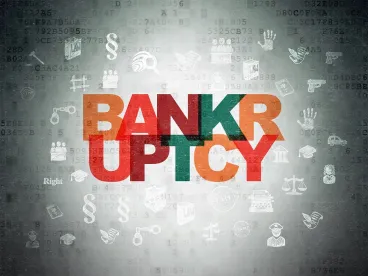When a debtor files bankruptcy under Chapter 11, the bankruptcy court does not automatically appoint a trustee.
Unlike Chapter 7, where the court appoints a trustee to investigate the debtor's assets, liquidate assets, and pursue and pay claims, a Chapter 11 debtor is the master of his or her domain. They must follow bankruptcy rules and procedures, but they generally may manage their own affairs and control their reorganization or liquidation.
But this right is not absolute. Although there is a strong presumption that a debtor should control his or her affairs, under certain extreme circumstances the court will find "cause" to appoint a Chapter 11 trustee. The circumstances usually involve fraud, dishonesty, incompetence, or gross mismanagement of the debtor's affairs by its management. While the court may be more concerned with post-filing conduct, it will consider pre-filing conduct.
How dishonest or incompetent must you be for the court to appoint a trustee? That depends on the facts of each case. As a recent case from the Bankruptcy Court for the Eastern District of North Carolina demonstrates, forgetting to mention the $137,000 Cartier necklace you gave your wife right before you declared bankruptcy is a start.
Christopher Harrison — the former president, CEO, and majority shareholder of EbenConcepts, an employee benefits company — filed a personal Chapter 11 bankruptcy petition in December 2019. Over the next few months, he filed schedules, statements of financial affairs, multiple amendments, and a disclosure statement and plan. He wanted to control his case, but six months in, some of his creditors sought a trustee.
To the court's mind, Mr. Harrison's pre-petition and post-petition behavior made the appointment of a Chapter 11 trustee a no-brainer. For instance:
-
He filed seven years' worth of tax returns that grossly underestimated his income, resulting in a multi-million dollar tax liability. He said he knew the income was inaccurate when he filed his returns.
-
He had his business pay his expenses or transfer cash to him totaling over $24 million. He did not report the payments as income and the business did not properly account for them, subjecting it to tax liability, fines, and penalties.
-
Two months before filing bankruptcy, he bought his wife a $137,000 necklace from Cartier in New York. He got the money from his company. He did not direct that the expense be accounted for as income or a loan to him and no accounting was made for the personal nature of the expense.
-
Within four years of filing bankruptcy, he purchased over $2.2 million in jewelry.
-
He insured none of the jewelry.
-
He used company funds to pay for his home outdoor pool, at a cost exceeding $300,000.
-
He had the company code all these personal expenses as "travel" or "office."
-
He had an astounding case of amnesia when he was asked, under oath, about his jewelry purchases. He could only recall purchases of between $20,000 and $25,000.
-
He had an American Express card he used for personal expenses. The company paid the bills. The month he filed bankruptcy, he converted $3.5 million in rewards points into Christmas gift cards.
-
Finally, while he served as President, CEO, and majority shareholder of EbenConcepts, the bookkeeper embezzled $1.9 million. The court called this gross mismanagement of a company in which he served as a fiduciary.
As to his post-petition conduct, Harrison's creditors contended that he flunked the honesty test. He filed schedules and statements of financial affairs under penalty of perjury, and he was questioned under oath. Incredibly, Harrison forgot the jewelry purchases, the under-reported income, the American Express points, and other vital information. In considering Harrison's memory lapses, the court did not sympathize with him as a victim of amnesia.
Finally, Harrison may have been a free-spending debtor with a faulty memory, but he was still a romantic who could not bring himself to ask his wife to return all that jewelry. But a debtor in possession has to act for the benefit of creditors, and the jewelry could not be used to pay creditors if his wife was wearing it. A chapter 11 trustee would not be encumbered by the awkward nature of demanding its return.
The appointment of a Chapter 11 trustee is an extreme remedy, and bankruptcy courts are reluctant to grant it. Dispossessing a debtor of their case goes against the spirit of the Bankruptcy Code and increases expenses. But when extreme misconduct is shown by clear and convincing evidence — and the debtor has essentially forfeited the right to manage its own affairs — the court will appoint a trustee.
[Ed. Note: A previous version of this article suggested that Christopher Harrison was the president, CEO, and majority shareholder of EbenConcepts when he filed bankruptcy. He was not.]




 />i
/>i
